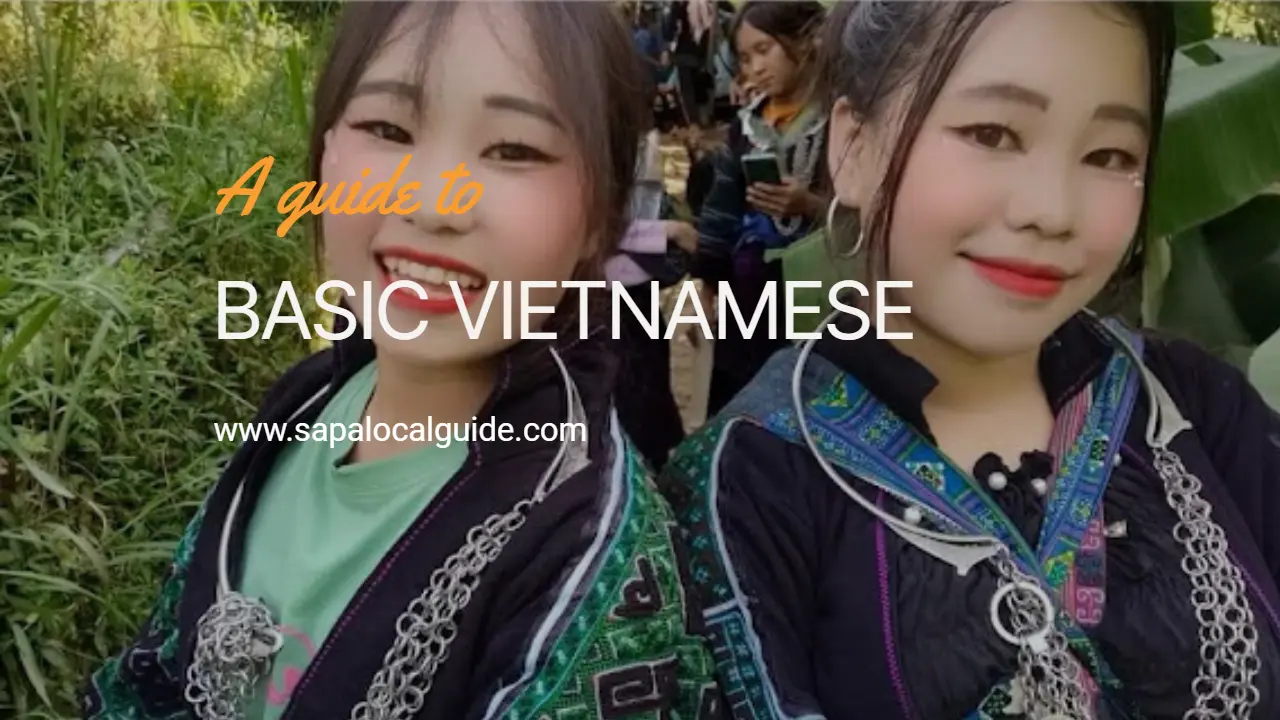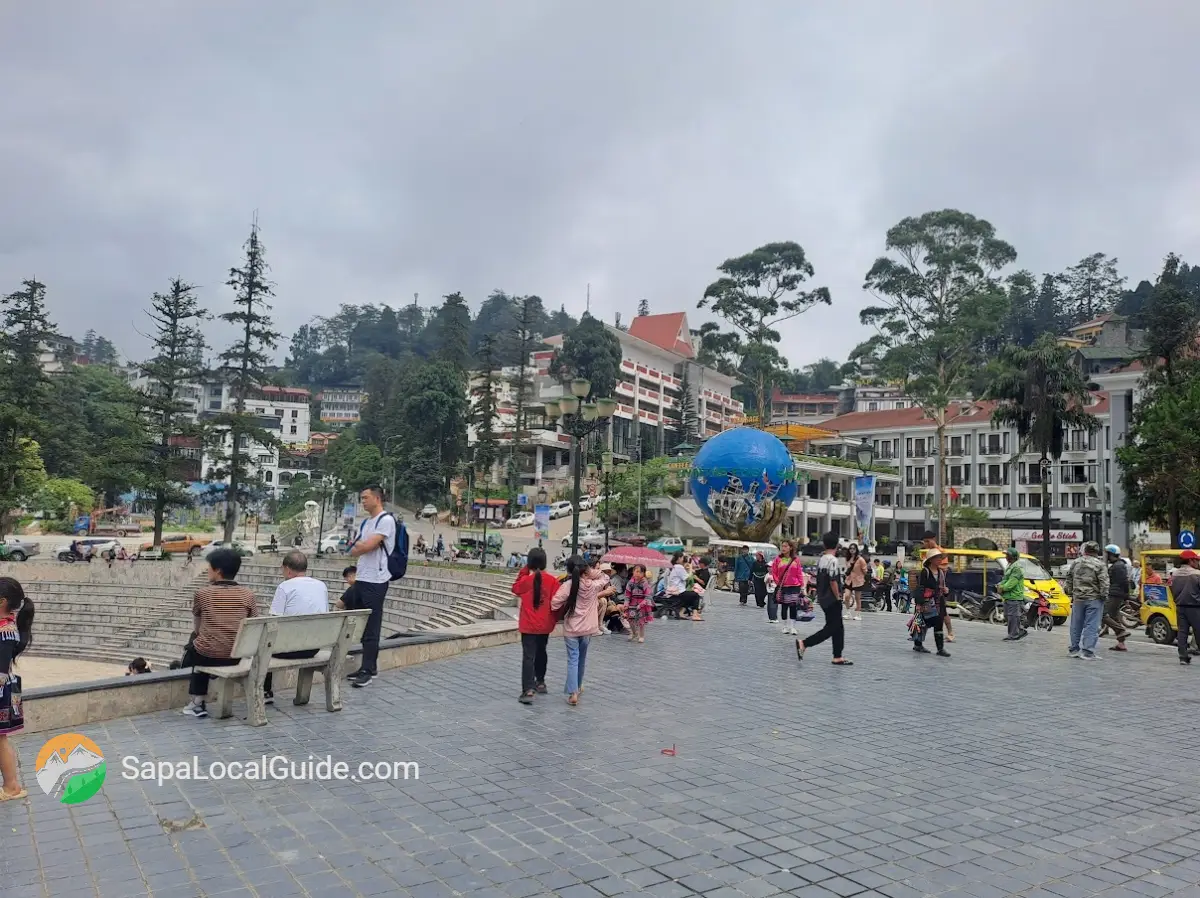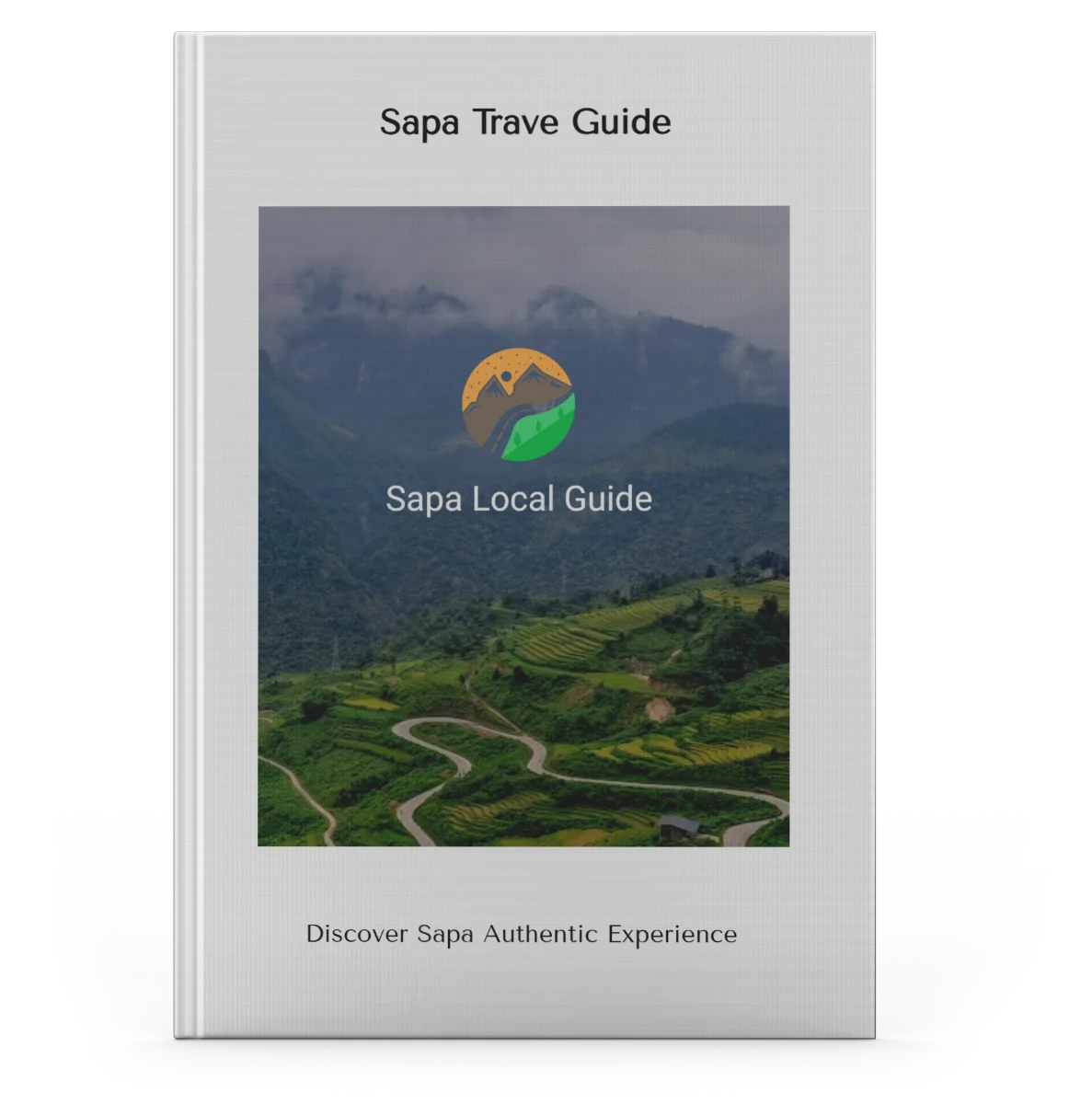![]()
Authentic Experience of Sapa
with sapa local guide Discover essential Vietnamese phrases for tourists. Vietnamese is widely used in big cities. Prosodic pronunciation is the key to clear communication.

Vietnamese is the national and official language of Vietnam. Most people in Vietnam speak it. Unlike many other Asian languages that use symbols, Vietnamese uses the Latin alphabet. This makes it easier to read street signs and learn to speak Vietnamese.

In big cities and tourist spots in the south, talking in English is getting easier because Vietnam is becoming more popular with tourists. The government has started programs to improve English lessons in schools because of the high demand. But if you want to visit smaller cities or villages, it might be helpful to know some basic Vietnamese.
In the south, many people can speak English well because they used to work with Americans in the past. Most older Vietnamese people don’t speak any English, but young people usually speak it better. Even though some young people might be shy around foreigners, they will still be happy to help if you get lost and need directions. Others might want to talk to you to practice their English. In hotels and restaurants in tourist areas, most Vietnamese people also speak English.
How you greet and talk to someone in Vietnam depends a lot on their gender, age, and social status compared to yours. As a general rule, if you call a man “ông” and a woman “bà,” you can be sure that you are being polite. If you are talking with someone who seems to be about your age, you can use “anh” (for a man) and “chị” (for a woman).
The hard part of the Vietnamese language is the pronunciation. Vietnamese is a tonal language with single-syllable words. Each syllable can be spoken in six different tones: flat, rising, quick falling, slow falling, high rising, or broken. Marks above the letters show the tone. Changing the tone can make a word mean six different things, and pronouncing it wrong can easily cause confusion.
| English | Vietnamees | Pronunciation |
| Hello | Xin chào | Xin-chao |
| Bye | Tạm biệt | Tam-biet |
| How are you? | Bạn khỏe không | Ban-ko-khe-khong |
| Nice to meet you | Rất vui được gặp bạn | Rat-vui-duoc-gab-ban |
| Doing well, thanks/td> | Cảm ơn, tôi khỏe | Kam-own, toi-khe |
| Do you speak English? | Bạn có thể nói tiếng Anh không? | Ban-ko-noi-duok-tien-eng-kong |
| What’s your name? | Tên bạn bạn là gì | Ten-ban-la-zee |
| I’m from … | Tôi đến từ… | Toi-den-tu… |
| My name is… | Tên tôi là… | Ten-toi-la… |
| Do you understand? | Bạn có hiểu không? | Ban-ko-hiew-kong |
| I do not understand | Tôi không hiểu | Toi-kong-hiew |
| Yes | Vâng | Vang |
| No | Không | Kong |
| Help! | Cứu! | Kiu |
| Thank you | Cảm ơn | Kam-own |
| What? | Cái gì? | Kai-ge |
| How much? | Bao nhiêu? | Baow-nhiu |
| Which? | Cái nào? | Cai-now |
| Where? | Ở đâu? | Ow-dau |
| When? | Khi nào? | Khi-now |
| I do not like it | Tôi không thích nó | Toi-kong-thik-no |
| I like it | Tôi thích nó | Toi-thik-no |
| English | Vietnamese | Pronunciation |
| Fish | Cá | Ka |
| Shrimps | Tôm | Tom |
| Shellfish | Sò | So |
| Rice | Cơm | Kom |
| Meat | Thịt | Theed |
| Beef | Thịt bò | Theed-bo |
| Chicken | Thịt gà | Theed-ga |
| Egg | Trứng | Trung |
| Duck | Thịt vịt | Theed-vid |
| Pork | Thịt lợn | Theed-lon |
| Lamb | Thịt cừu | Theed-kiu |
| Seafood | Hải sản | Hai-san |
| Coffee | Cà phê | Café |
| Tea | Trà | Traj |
| Water | Nước | Nuok |
| Breakfast | Ăn sáng | An-sang |
| Lunch | Ăn trưa | An-trua |
| Diner | Ăn tối | An-toi |
| Chopsticks | Đũa | Dua |
| Fork | Nĩa | Nia |
| Knife | Dao | Daow |
| Spoon | Thìa | Thia |
| Glas | Cốc | Coke |
| I’m full | Tôi no rồi | Toi-no-roi |
| Very tasty! | Rất ngon! | Rat-ngon |
| Can I have the menu? | Làm ơn cho tôi thực đơn? | Lam-own-cho-toi-thuk-dern |
| Can I have the menu in English? | Bạn có thực đơn bằng tiếng Anh không? | Ban-ko-thuk-dern-bang-tieng-Anh-kong |
| May I have the bill? | Làm ơn cho tôi hoá đơn? | Lam-own-cho-toi-hoa-dern |
| Restaurant | Nhà hàng | Nha-hang |
| English | Vietnamese | Pronunciation |
| I no longer have gas | Tôi bị hết xăng | Toi-bi-het-xang |
| I am lost, please help me | Tôi bị lac, làm ơn giúp | Toi-bi-lak, lam-own-giup |
| Waar is ….? | Ở đâu là…? | Ow-dau-la |
| How far is it? | Nó xa bao nhiêu? | No-xa-baow-nhiew |
| Go straight ahead | Đi thẳng | Di-thang |
| Left | Trái | Trai |
| Right | Phải | Phai |
| It is an emergency | Đây là một trường hợp khẩn cấp | day-la-mod-truong-hop-khan-cap |
| Where is the nearest police station? | Đồn cảnh sát gần nhất ở đâu? | Don-canh-sat-gan-nhat-ow-dau |
| Please help me | Làm ơn giúp tôi | Lam-on-giup-toi |
| Where is the hospital? | Bệnh viện ở đâu? | Benh-vien-ow-dau |
| I need a doctor? | Tôi cần một bác sĩ | Toi-kan-mod-bac-si |
| Police station | Đồn cảnh sát | Don-canh-sat |
| Market | Chợ | Cho |
| Hotel | Khách sạn | Khach-san |
| ATM | Máy rút tiền | May-rud-tien |
Sapa Local Guide hopes that the above information will help you and wish you an enjoyable and meaningful vacation in Vietnam
Complete with itinerary, destinations, food, accommodation and tips!
